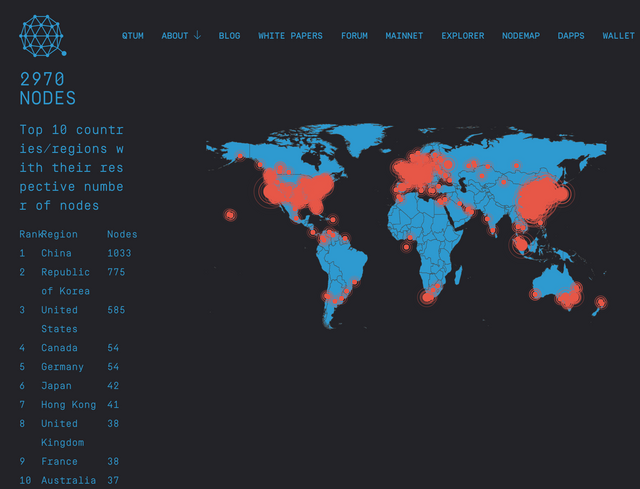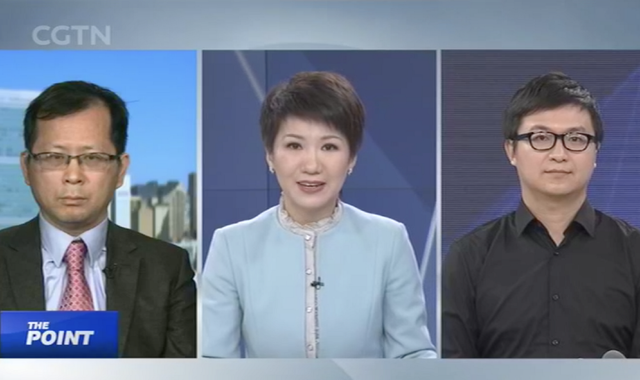QTUM's price surges after a massive increase in Chinese Proof of Stake nodes

QTUM was one of the top performing coins today, with price surging by 25% in the past 24 hours. This comes after a mysterious but very significant increase in Proof of Stake nodes in China. China used to be in second place behind South Korea but has mysteriously surged to first place with more than 1000 nodes.
Check out the real time node map here.

QTUM is a Proof of Stake smart contracts blockchain that combines Ethereum's smart contract virtual machine (EVM) with a Bitcoin-style UTXO blockchain. This is not easy to do as the EVM expects an account model blockchain while a UTXO blockchain is radically different. However, the UTXO blockchain brings many advantages. It's mathematically secure and allows mobile clients to verify blockchain data through the SPV protocol.
By combining the EVM with a UTXO blockchain, QTUM is also able to take advantage of the highly mature and productive ecosystems of both Ethereum and Bitcoin. Using the EVM means any Ethereum smart contract can run on QTUM with minimal changes. Using a UTXO blockchain means any Bitcoin upgrades can be easily applied to QTUM. For example, QTUM already has SegWit and is already implementing the Lightning Network. QTUM's also runs a highly decentralized proof of stake algorithm. The algorithm doesn't require a minimum balance to stake; anyone with a positive balance of QTUM will be able to participate in staking.
QTUM's ecosystem has grown tremendously since it's main net launch in September. Close to 50 companies are building on the platform, including INK, which has an investment from Russia’s largest pension fund, NPF Gazfond. Robin8, another company building on QTUM, partnered with Alibaba to integrate the Ali crowdsourcing platform with the Robin8's app. QTUM is also the first blockchain with a full node operating in space. As a debut launch, Spacechain decided to launch a satellite hosting a QTUM node into space. The QTUM satellite is currently orbiting Earth as we speak.
QTUM also has made huge progress in the Chinese market. China's government has been surprisingly open to companies working with QTUM. Two major Chinese companies, Qihoo 360 and Baofeng, have established significant partnerships with the QTUM Foundation to experiment with integrating QTUM into their products. Patrick Dai, QTUM's founder, was recently invited to speak on CGTN, the English channel of Chinese state television, CCTV. QTUM also hosts QCash, the most popular stablecoin pegged to the Renminbi. QCash is a base trading pair in two of the largest Chinese altcoin exchanges, ZB.com and EXX.com.

Has anyone been charting these nodes? would be interesting to see the progression, especially by country.
Don't think the nodes are charted. By China has certainly rocketed up like a step function over the last few days. Was behind South Korea before.
Thanks for reply. I may have to start tracking manually!
No problem :) I know quite a bit about QTUM so don't hesitate to ask